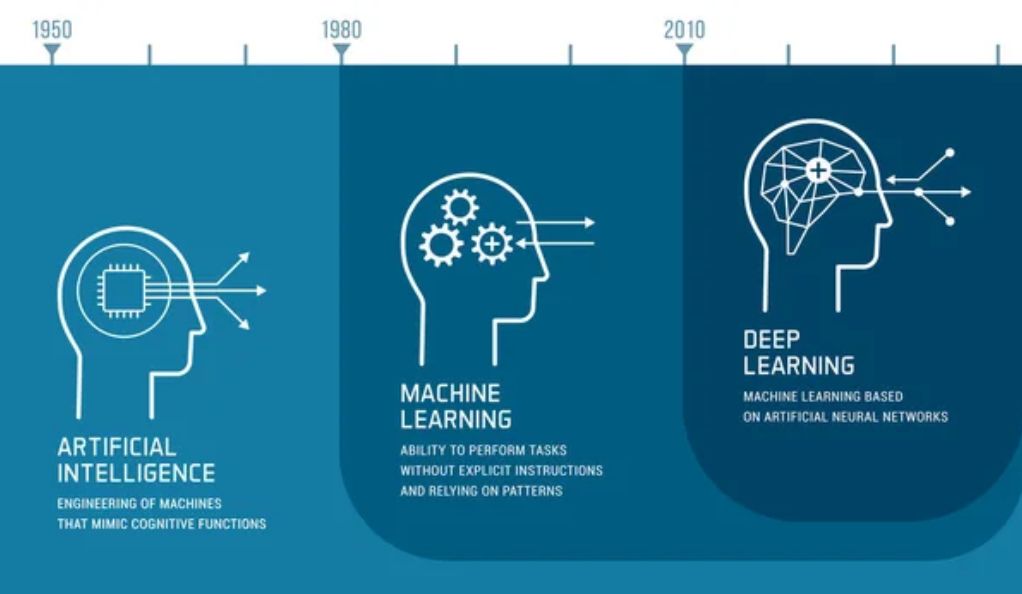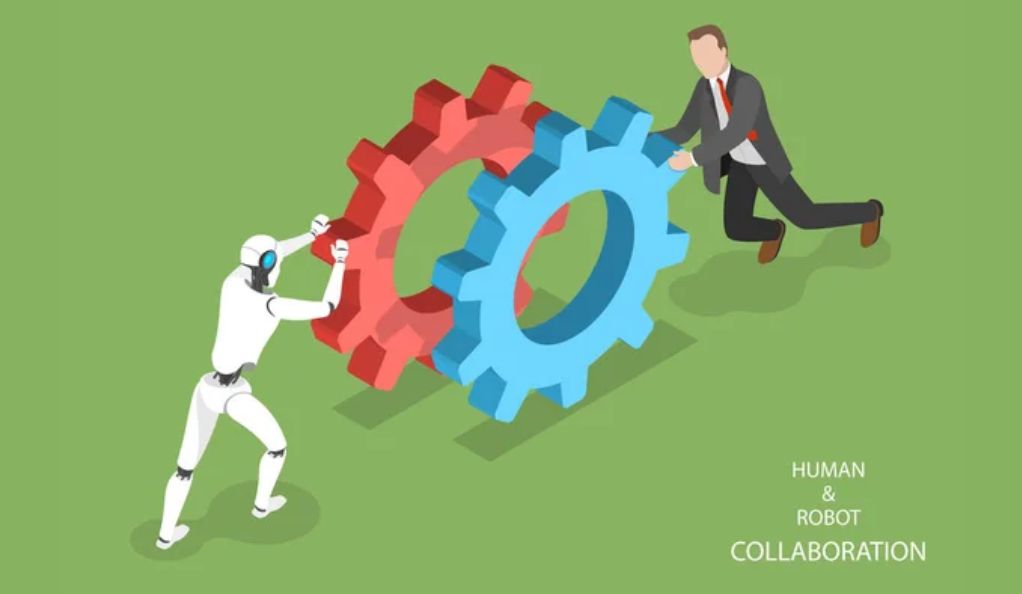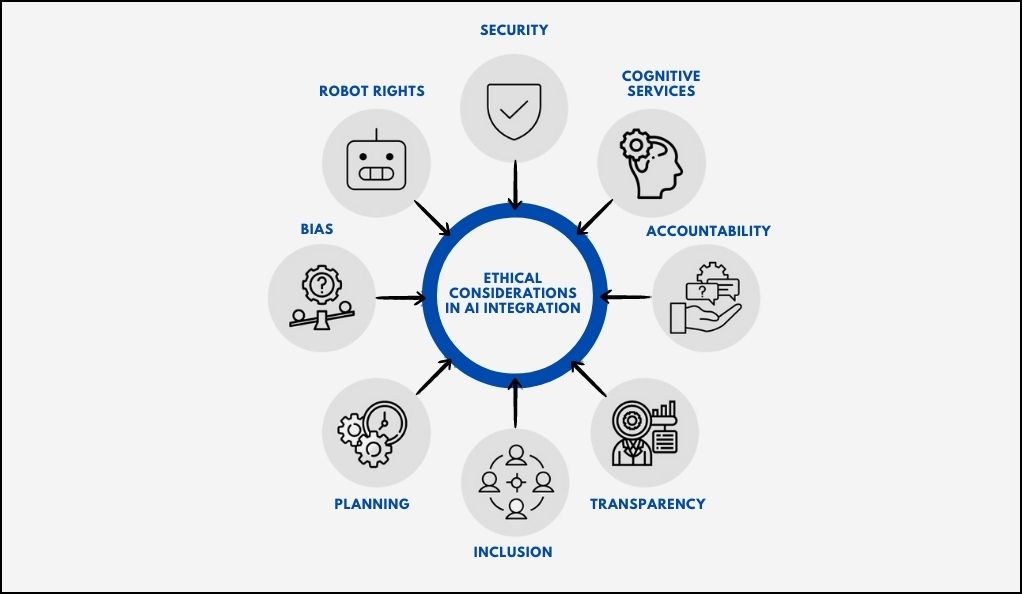
Introduction
In the digital age, the business landscape is undergoing a seismic shift, largely driven by the rise of artificial intelligence (AI). From streamlining operations to predicting market trends, AI tools are revolutionizing the way businesses operate. This transformative journey is characterized by a fusion of data-driven insights and advanced automation, leading to enhanced decision-making and unprecedented efficiency.
AI’s emergence as a transformative force is reshaping traditional business paradigms. Its ability to process and analyze vast amounts of data in real time empowers companies to make informed decisions with remarkable precision. Through predictive analytics, businesses can anticipate shifts in consumer behavior and market trends, enabling them to proactively adapt strategies and stay ahead of the competition. Additionally, AI’s capacity to automate routine tasks frees up valuable human resources, allowing employees to focus on strategic thinking and creative problem-solving. This synergy between human intellect and AI-driven capabilities is driving innovation and setting the stage for a new era of business excellence.
As AI continues to integrate into business operations, ethical considerations and responsible AI practices are paramount. Addressing potential biases in algorithms, ensuring transparency in decision-making processes, and providing avenues for upskilling and reskilling employees are crucial steps in maximizing AI’s benefits while mitigating potential risks. The transformative journey catalyzed by AI is not only about technological advancement; it’s about embracing a holistic approach that marries innovation with ethics to create a sustainable and impactful future for businesses and industries worldwide.
Understanding AI and Its Variants

- Artificial Intelligence (AI)
At its core, artificial intelligence (AI) encompasses computer systems capable of executing tasks that conventionally demand human intellect. These tasks span a spectrum of complexities, from intricate problem-solving to nuanced language comprehension and pivotal decision-making. Through advanced algorithms and machine learning, AI has transcended its initial concept to become a transformative technology, redefining the boundaries of what machines can achieve in emulating human cognitive functions.
- Machine Learning (ML)
A subset of artificial intelligence (AI), machine learning (ML) empowers computers to acquire knowledge from data. In contrast to traditional explicit programming, ML algorithms dynamically adapt and evolve by learning patterns and insights inherent within the data they process. This autonomous learning capability has revolutionized various industries, allowing systems to make accurate predictions, uncover hidden correlations, and continuously refine their performance without human intervention.
- Deep Learning
Deep learning, a more specialized branch of machine learning (ML), draws inspiration from the intricate architecture of the human brain. Operating through neural networks, deep learning algorithms possess the remarkable ability to simultaneously analyze multiple factors. This characteristic renders deep learning particularly invaluable for tackling intricate tasks such as image recognition and speech comprehension. By mimicking the brain’s interconnected neural pathways, deep learning has propelled breakthroughs in areas ranging from autonomous driving to medical diagnostics, cementing its role as a pivotal force in the realm of modern technology.
AI in Action: Current Business Applications
- Streamlining Job Processes: AI tools, especially ML algorithms, can sift through vast amounts of data, identifying patterns and insights that can streamline business operations.
- AI in CRM: Modern customer relationship management (CRM) systems, powered by AI, can predict customer behavior, automate responses, and even manage marketing campaigns.
- Cybersecurity: AI-driven security systems can detect threats in real-time, ensuring that business data remains secure.
- Internet Searches and Data Research: Search engines now use AI to provide more relevant results, enhancing user experience.
- Digital Personal Assistants: Tools like Siri, Alexa, and Cortana are AI-driven assistants that help manage tasks, answer queries, and even control smart home devices.
The Transformative Power of Machine Learning

The Transformative Power of Machine Learning” lies in its capacity to revolutionize industries and decision-making processes. By analyzing vast datasets, machine learning algorithms uncover intricate patterns and correlations that guide businesses toward informed choices. This technology’s ability to learn from data, adapt over time, and predict outcomes fosters efficiency across sectors, from manufacturing to healthcare. Moreover, as machine learning permeates sectors like finance, its role in risk assessment and fraud detection becomes increasingly pivotal. This transformative power reshapes business models, empowers innovation, and propels organizations toward data-driven success.
How Machine Learning Processes Vast Data
| Aspect | Traditional Computing | Machine Learning |
|---|---|---|
| Data Processing | Manual input required | Learns from data |
| Efficiency | Time-consuming | Rapid analysis |
| Accuracy | Depends on input | Improves over time |
Machine learning, especially when combined with the Internet of Things (IoT), can process data from various sources, providing actionable insights that can significantly improve business operations.
Deep Dive into Deep Learning
The prowess of deep learning extends to processing colossal volumes of data concurrently, rendering it indispensable for complex undertakings such as fraud detection. Its proficiency in discerning intricate patterns and anomalies within data sets equips businesses with a powerful tool to identify fraudulent activities swiftly and accurately. Beyond financial realms, deep learning’s impact resonates across sectors where data scrutiny is paramount for security and integrity.
Illustrating its practical significance, the application of deep learning is prominently showcased in the domain of autonomous vehicles. Self-driving cars harness the capabilities of deep learning to analyze real-time data from sensors, enabling them to navigate and make instantaneous decisions that prioritize safety. This fusion of technology and real-world application underscores the transformative potential of deep learning in e
The Human-AI Collaboration

While the prowess of artificial intelligence (AI) is undeniable, its role transcends the notion of replacement and enters the realm of augmentation. Rather than supplanting humans, AI serves as a formidable tool that enhances human capabilities. This symbiotic relationship is exemplified in scenarios where AI’s analytical acumen thrives in collaboration with human ingenuity.
Take, for instance, the realm of market analysis. AI excels in meticulously dissecting vast volumes of data to reveal intricate trends and patterns. However, when it comes to steering the ship of strategic decision-making, human intuition and experience become indispensable. The marriage of AI-generated insights and human wisdom results in a potent combination that elevates the quality of decisions and fuels innovation, underscoring that the true potential of AI lies not in substitution, but in its capacity to amplify human potential.
The Future of AI in Business
The business landscape of tomorrow is intricately entwined with the progression of artificial intelligence (AI). This powerful driving force holds the potential to reshape entire industries, redefine the roles people play, and unleash a wave of innovation like never before seen. In this section, we navigate through the intricate tapestry of AI’s future in business, uncovering its varied potential applications, revolutionary influence, and the ethical dimensions that come hand-in-hand with its advancement.
The Promise of AI in Business
The integration of AI into business operations heralds a new era of efficiency and insights. Predictive analytics, a cornerstone of AI, will empower businesses to anticipate customer preferences, market trends, and even potential risks. The result? Informed decisions that are poised to enhance customer experiences and maximize profitability.
As AI-driven technologies continue to mature, we can expect to witness an exponential surge in automation. Repetitive tasks across industries will be entrusted to AI systems, freeing up human resources for strategic endeavors that demand creativity and critical thinking. This transition will transform job roles, emphasizing skills that complement AI’s capabilities, such as problem-solving, emotional intelligence, and ethical decision-making.
Transforming Industries with AI
Industries across the spectrum will experience profound shifts as AI becomes an integral part of their operations. Manufacturing, for instance, will see a surge in precision and customization as AI-driven automation streamlines production processes. Healthcare will harness AI for accurate diagnosis, personalized treatment plans, and drug discovery, ushering in an era of proactive and personalized medical care.
Retail, too, will undergo a metamorphosis. AI-powered recommendation systems will cater to individual preferences, enabling hyper-personalized shopping experiences. Financial sectors will leverage AI’s predictive prowess to manage risk, detect fraud, and enhance investment strategies. From transportation to agriculture, AI’s potential is boundless, with each industry poised to benefit from its transformative capabilities.
Ethical Considerations in the AI-Powered Future
While the future of AI is brimming with possibilities, it’s not without its ethical complexities. The rapid integration of AI raises questions about data privacy, algorithmic biases, and the impact on employment. Businesses must navigate these concerns with a commitment to transparency, fairness, and responsible AI practices.
As AI influences decision-making processes, the need for human oversight remains paramount. The ethical compass guiding AI’s actions should reflect the values and intentions of its human creators. Ensuring that AI operates within ethical boundaries requires collaboration between technologists, policymakers, and businesses to establish frameworks that protect the rights and well-being of individuals.
Embracing the Future: A Unified Approach
The future of AI in business is a convergence of technological innovation, strategic foresight, and ethical responsibility. As organizations embark on this transformative journey, they must prioritize continuous learning and adaptability. Upskilling and reskilling employees will be pivotal in preparing the workforce for an AI-driven landscape. Embracing diversity in skill sets and perspectives will foster an environment where AI complements human ingenuity, enriching decision-making processes and driving progress.
In conclusion, the future of AI in business is both promising and complex. It’s a future where innovation flourishes, industries transform, and human potential is amplified. As we navigate this uncharted territory, the fusion of AI’s capabilities with human wisdom will shape a future where responsible and collaborative AI integration becomes a driving force behind business success.
Ethical Considerations in AI Integration

As businesses increasingly rely on AI, they must address several ethical concerns:
- Job Displacement: While AI can automate tasks, it’s essential to ensure that employees are reskilled, ensuring their relevance in the AI-driven future.
- Algorithmic Biases: AI algorithms can sometimes inherit biases present in the data they’re trained on. Businesses must ensure that these biases are identified and corrected.
- Transparency: As AI systems make more decisions, businesses must ensure that these decisions are transparent and can be explained.
Conclusion
The undeniable surge of AI tools in contemporary business heralds an era of unparalleled advantage. As these tools evolve in sophistication, they unlock new dimensions of efficiency, accuracy, and innovation. The transformative impact spans from streamlining operations to unlocking predictive insights, propelling businesses to the forefront of competitiveness.
Yet, within this transformative potential lies a crucial responsibility. The adage “with great power comes great responsibility” resonates deeply in the AI landscape. As we navigate the trajectory towards an AI-driven future, businesses bear the ethical obligation to wield these tools judiciously. The ethical integration of AI entails safeguarding against biases, ensuring transparency in decision-making, and preserving human oversight. By steering AI’s evolution with ethics at the helm, businesses pave the way for a future where innovation thrives without compromising on the principles that underpin societal progress.
At bitvestment.software, our commitment is to deliver unbiased and reliable information on subjects like cryptocurrency, finance, trading, and stocks. It's crucial to understand that we are not equipped to offer financial advice, and we actively encourage users to conduct their own comprehensive research.
Read More